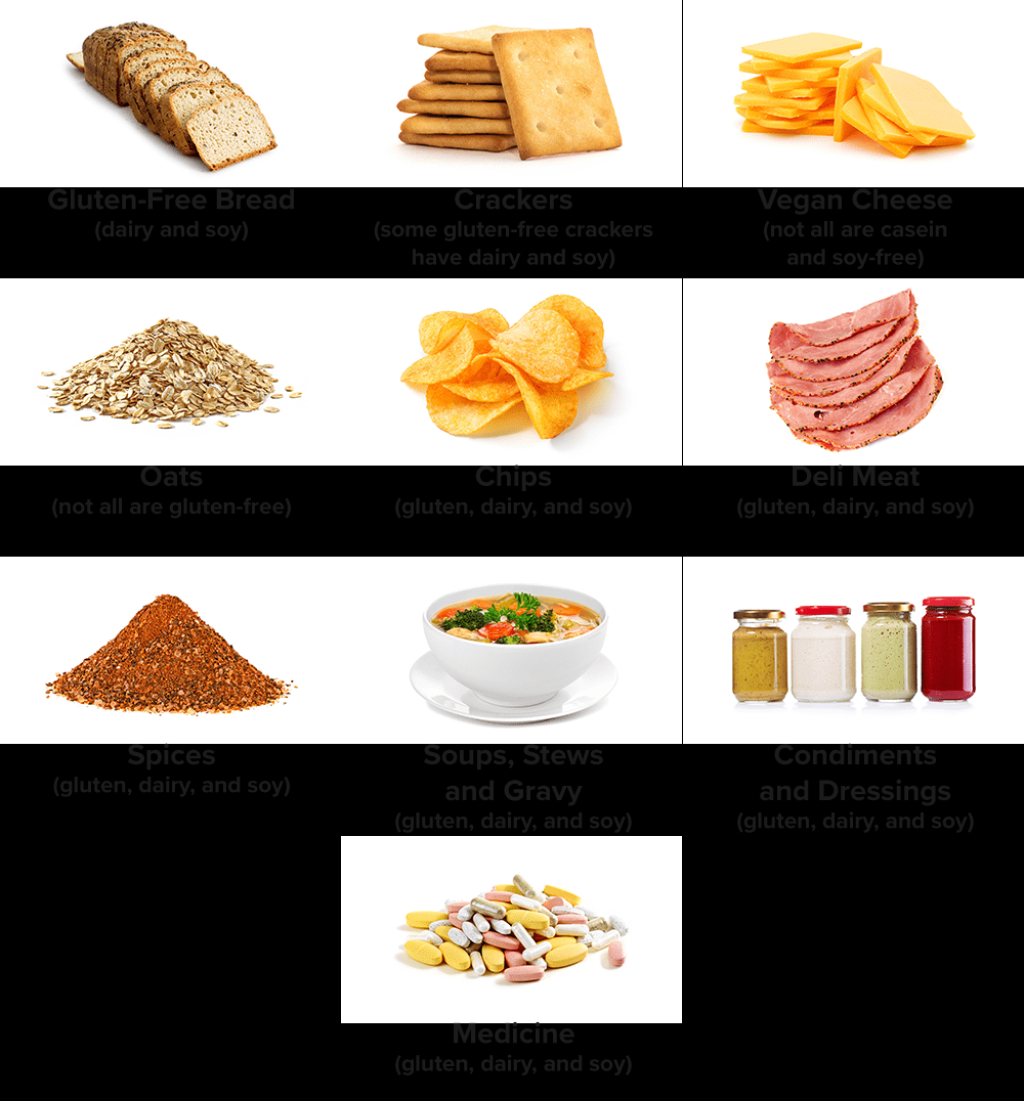Transform Your Health With The Power Of Gluten-Free Liquid Diet: Click Here To Start Your Journey!
Gluten Free Liquid Diet: A Comprehensive Guide
Greetings, Readers! Today, we will delve into the world of gluten free liquid diet. In recent years, this diet has gained popularity among individuals who are looking to improve their health, manage certain medical conditions, or simply try something new. In this article, we will explore what the gluten free liquid diet entails, who can benefit from it, when and where it can be implemented, why it is important, and how to adopt this diet successfully. So, let’s dive in and discover the wonders of the gluten free liquid diet!
Table of Contents
2 Picture Gallery: Transform Your Health With The Power Of Gluten-Free Liquid Diet: Click Here To Start Your Journey!


1. Introduction

Image Source: tacanow.org
2. What is Gluten Free Liquid Diet?
3. Who Can Benefit from Gluten Free Liquid Diet?

Image Source: jukasorganic.com
4. When and Where to Implement Gluten Free Liquid Diet?
5. Why is Gluten Free Liquid Diet Important?
6. How to Successfully Adopt Gluten Free Liquid Diet?
7. Advantages and Disadvantages of Gluten Free Liquid Diet
8. Frequently Asked Questions about Gluten Free Liquid Diet
9. Conclusion
10. Final Remarks
1. Introduction
The gluten free liquid diet is a dietary approach that eliminates foods containing gluten and focuses on consuming liquids that are gluten free. Gluten is a protein found in wheat, barley, and rye, and it can cause adverse reactions in individuals with gluten sensitivities, such as celiac disease or gluten intolerance. This diet offers an alternative for those who need to avoid gluten or are seeking a temporary change in their eating habits.
Gluten free liquid diet involves consuming a variety of liquids, including smoothies, juices, soups, and broths. By following this diet, individuals can still obtain essential nutrients while avoiding gluten-containing foods. It is important to note that this diet should be implemented under the guidance of a healthcare professional or a registered dietitian to ensure proper nutrition and avoid any potential risks.
Diving deeper into the gluten free liquid diet, let us explore its various aspects and understand how it can benefit different individuals.
2. What is Gluten Free Liquid Diet?
The gluten free liquid diet is a dietary approach that involves the consumption of liquids that are free from gluten. Gluten is a protein found in wheat, barley, and rye, and it can cause adverse reactions in individuals with gluten sensitivities or intolerances. This diet aims to eliminate gluten-containing foods and replace them with liquid-based alternatives.
Gluten free liquid diet primarily consists of liquids such as smoothies, juices, soups, and broths. These options provide hydration, nourishment, and can be customized to include a variety of fruits, vegetables, and other nutrient-rich ingredients. The diet focuses on maintaining a proper balance of essential nutrients while avoiding the intake of gluten.
3. Who Can Benefit from Gluten Free Liquid Diet?
The gluten free liquid diet can benefit various individuals, including those with specific medical conditions and those seeking a temporary change in their eating habits. Here are some examples of individuals who can benefit from the gluten free liquid diet:
1. Individuals with celiac disease: Celiac disease is an autoimmune disorder in which the consumption of gluten triggers an immune response in the body. Following a gluten free diet, including a liquid-based approach, is crucial for managing the symptoms and preventing further damage to the small intestine.
2. Individuals with gluten intolerance or sensitivity: Some individuals may experience adverse reactions to gluten without having celiac disease. These individuals can benefit from a gluten free diet to alleviate symptoms such as bloating, abdominal pain, and diarrhea.
3. Individuals with digestive issues: The gluten free liquid diet can be beneficial for individuals with digestive issues, as liquids are generally easier to digest compared to solid foods. This can provide relief to individuals with conditions such as irritable bowel syndrome or inflammatory bowel disease.
4. Individuals looking for a temporary detox or weight loss method: The gluten free liquid diet can be adopted by individuals looking to cleanse their bodies or kickstart a weight loss journey. However, it is important to consult a healthcare professional or a registered dietitian before embarking on any restrictive diet.
4. When and Where to Implement Gluten Free Liquid Diet?
The gluten free liquid diet can be implemented in various situations and settings. Here are some instances where this diet can be beneficial:
1. Medical conditions: Individuals with celiac disease, gluten intolerance, or other medical conditions that require a gluten free diet can implement the gluten free liquid diet as part of their treatment plan.
2. Post-surgery recovery: After certain surgeries, the digestive system may require a period of rest and recovery. During this time, a gluten free liquid diet can provide necessary nutrition without putting excessive strain on the digestive system.
3. Traveling: When traveling, especially to unfamiliar destinations where gluten-free options may be limited, adopting a gluten free liquid diet can make it easier to maintain a gluten free lifestyle.
4. Weight loss or detox programs: The gluten free liquid diet can be incorporated into weight loss or detox programs to provide a temporary change in eating habits. However, it is important to approach these programs with caution and consult a healthcare professional or a registered dietitian.
5. Why is Gluten Free Liquid Diet Important?
The gluten free liquid diet holds significance for individuals with gluten sensitivities or intolerances, as well as those with certain medical conditions. Here are some reasons why this diet is important:
1. Managing celiac disease: For individuals with celiac disease, following a strict gluten free diet is essential to prevent damage to the small intestine and alleviate symptoms such as diarrhea, abdominal pain, and fatigue.
2. Reducing gluten-related symptoms: By avoiding gluten-containing foods, individuals with gluten sensitivities or intolerances can experience relief from symptoms such as bloating, gas, diarrhea, and skin rashes.
3. Nutritional intake: The gluten free liquid diet can provide necessary nutrients while eliminating gluten. By incorporating a variety of fruits, vegetables, and other ingredients into liquid-based meals, individuals can ensure they are receiving essential vitamins, minerals, and antioxidants.
4. Digestive health: Liquids are generally easier to digest compared to solid foods. This can be beneficial for individuals with digestive issues, as it can reduce the strain on the digestive system and provide relief from symptoms such as constipation or diarrhea.
6. How to Successfully Adopt Gluten Free Liquid Diet?
Adopting a gluten free liquid diet requires careful planning and consideration. Here are some tips to successfully incorporate this diet into your lifestyle:
1. Seek professional guidance: Consult a healthcare professional or a registered dietitian to ensure you are meeting your nutritional needs and to receive personalized advice.
2. Educate yourself: Learn about gluten-containing foods and how to identify hidden sources of gluten. This knowledge will help you make informed choices and avoid accidental gluten intake.
3. Plan your meals: Plan your gluten free liquid meals in advance to ensure a balanced and varied diet. Include a variety of fruits, vegetables, protein sources, and healthy fats to meet your nutritional requirements.
4. Experiment with recipes: Explore different recipes and combinations of ingredients to keep your meals interesting and flavorful. There are numerous gluten free liquid recipes available online and in cookbooks to inspire your culinary creations.
5. Stay hydrated: Hydration is essential on a gluten free liquid diet. Make sure to drink plenty of water, herbal teas, and other gluten-free beverages to maintain optimal hydration.
6. Be mindful of potential nutrient deficiencies: While the gluten free liquid diet can provide essential nutrients, there is a risk of certain deficiencies, such as fiber, iron, and B vitamins. Consider incorporating supplements or alternative food sources to address these deficiencies.
7. Monitor your progress: Keep track of how your body responds to the gluten free liquid diet. If you notice any adverse effects or concerns, consult your healthcare professional or registered dietitian.
7. Advantages and Disadvantages of Gluten Free Liquid Diet
Like any dietary approach, the gluten free liquid diet has its advantages and disadvantages. Let’s explore them in detail:
Advantages:
👍 Convenience: Liquid meals can be quick and easy to prepare, making them convenient for individuals with busy lifestyles.
👍 Nutrient density: Gluten free liquid meals can be packed with essential nutrients, vitamins, and minerals, as they often incorporate fruits, vegetables, and other nutrient-rich ingredients.
👍 Digestive health: Liquids are generally easier to digest, which can provide relief for individuals with digestive issues or those recovering from certain medical procedures.
👍 Variety: The gluten free liquid diet offers a wide range of options, allowing individuals to experiment with flavors and textures while enjoying a diverse selection of ingredients.
Disadvantages:
👎 Nutritional deficiencies: Without proper planning, a gluten free liquid diet can lead to deficiencies in certain nutrients, such as fiber, iron, and B vitamins. It is important to ensure these nutrients are adequately replaced through the inclusion of supplements or alternative food sources.
👎 Limited food choices: Following a gluten free liquid diet may require avoiding certain foods and ingredients, which can limit food choices and make it challenging to dine out or socialize in certain settings.
👎 Lack of satiety: Liquid meals may not provide the same level of satiety as solid foods, which can leave individuals feeling less satisfied or hungry shortly after consuming a meal.
👎 Potential for inadequate calorie intake: Depending on the individual’s energy needs, a gluten free liquid diet may not provide enough calories to meet daily requirements. It is important to monitor calorie intake and ensure it is sufficient for individual needs.
8. Frequently Asked Questions about Gluten Free Liquid Diet
1. Is a gluten free liquid diet suitable for everyone?
No, a gluten free liquid diet is not suitable for everyone. It is important to consult a healthcare professional or a registered dietitian before adopting this diet to ensure it is appropriate for your specific needs and health condition.
2. Can I drink alcohol on a gluten free liquid diet?
Alcohol can contain gluten, so it is important to choose gluten free options if you decide to consume alcohol while following a gluten free liquid diet. However, it is recommended to limit alcohol consumption and prioritize hydrating, gluten-free beverages.
3. Are there any side effects of a gluten free liquid diet?
While a gluten free liquid diet can have numerous benefits, it can also lead to potential side effects if not followed properly. Some individuals may experience digestive issues, changes in bowel movements, or nutrient deficiencies if the diet is not well-planned and balanced. Consulting a healthcare professional or a registered dietitian is essential to minimize potential side effects.
4. Can I lose weight on a gluten free liquid diet?
A gluten free liquid diet can be incorporated into a weight loss plan, but it is important to approach weight loss with caution and under professional guidance. Weight loss should be achieved through a balanced and sustainable approach that includes regular physical activity and a well-rounded diet.
5. Can children follow a gluten free liquid diet?
Special care should be taken when considering a gluten free liquid diet for children. Children have specific nutritional needs, and it is important to consult a pediatrician or a registered dietitian before making any significant dietary changes for children.
9. Conclusion
In conclusion, the gluten free liquid diet offers an alternative approach for individuals who need to avoid gluten or are seeking a temporary change in their eating habits. This diet can be beneficial for individuals with celiac disease, gluten intolerance, digestive issues, or those looking to kickstart a weight loss journey. However, it is important to approach this diet under the guidance of a healthcare professional or a registered dietitian to ensure proper nutrition and avoid potential risks. By incorporating a variety of liquids, individuals can still obtain essential nutrients while avoiding gluten-containing foods. Remember to plan your meals, experiment with recipes, and monitor your progress to make the most out of the gluten free liquid diet.
10. Final Remarks
While the gluten free liquid diet can offer various benefits, it is important to remember that individual needs and preferences may vary. It is always advisable to consult a healthcare professional or a registered dietitian before making any significant changes to your diet. Additionally, it is crucial to listen to your body and make adjustments as necessary. The information provided in this article is for educational purposes only and should not replace professional medical advice. Remember to prioritize your health and well-being above all else. Cheers to a nutritious and gluten free journey ahead!
This post topic: Liquid

